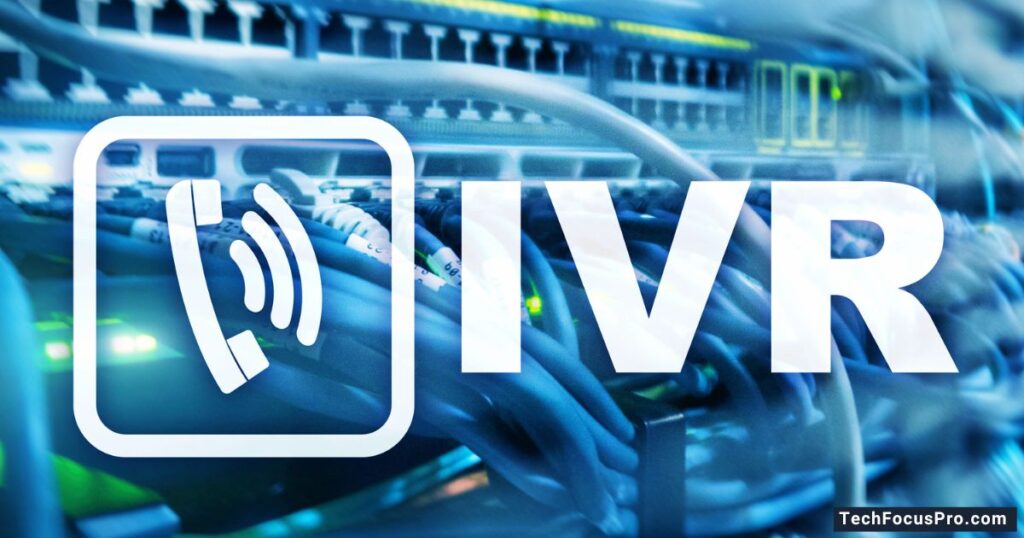Improving Customer Interactions Using Intelligent IVR Systems

In today’s fast-paced digital world, where customers demand quick and seamless solutions, businesses face increasing pressure to provide excellent customer service.
A critical tool in achieving this goal is the interactive voice system, which leverages advanced technology to transform how customers interact with businesses.
By integrating artificial intelligence and automation, modern IVR systems are revolutionizing customer experiences, making them more efficient and personalized than ever before.
This article delves into how intelligent IVR systems are reshaping customer service and why they have become indispensable for businesses striving to meet customer expectations.
The Rise of Intelligent IVR Systems
Interactive Voice Response (IVR) systems have been around for decades, primarily used to route customer calls to appropriate departments. However, traditional IVR systems often frustrate customers with long wait times and clunky menus.
The emergence of intelligent IVR systems has changed this narrative entirely. These systems, powered by AI and machine learning, offer more innovative, intuitive solutions prioritizing the customer experience.
Unlike their predecessors, intelligent IVR systems can process natural language, allowing customers to speak conversationally instead of navigating rigid menu options.
For example, a customer might say, “I want to check my account balance,” the IVR system will instantly direct them to the relevant service. This natural interaction reduces friction, saves time, and creates a more human-like user experience, fostering loyalty and satisfaction.
Additionally, intelligent IVR systems can analyze data from previous interactions to provide personalized responses. By recognizing a returning customer, these systems can anticipate needs and offer tailored suggestions, creating an experience that feels more attentive and less transactional.
Read More: Achieving Business Success With Integrated AV Solutions
Streamlining Operations with Smarter Call Routing

One key benefit of intelligent IVR systems is their ability to streamline operations by routing calls efficiently. Traditional call centres often suffer from bottlenecks, where customers are left on hold or transferred multiple times before reaching the right agent.
Intelligent IVR systems solve this problem by quickly assessing the nature of the query and connecting the customer to the most suitable department or representative.
This capability is particularly beneficial for businesses handling high call volumes. Instead of overwhelming live agents with every customer query, an intelligent IVR system filters and resolves more straightforward issues, freeing agents to handle more complex cases.
The result is improved efficiency for the business, shorter wait times, and a smoother experience for customers.
Moreover, these systems can integrate seamlessly with customer support channels like live chat and email. This omnichannel approach ensures that customers receive consistent support, no matter how they interact with the business.
Such integration further enhances the customer journey, making intelligent IVR systems an invaluable asset for modern businesses.
Personalization: The Heart of Customer Experience
Personalization has become a cornerstone of exceptional customer service, and intelligent IVR systems excel in this area. Using customer data and interaction history, these systems can predict customer needs and proactively offer relevant solutions.
For instance, if a customer has previously called about a specific issue, the IVR system can greet them with a tailored message, referencing the prior interaction.
This level of personalization saves time and makes the customer feel valued and understood. It eliminates the need for customers to explain their issues, reducing frustration and fostering trust repeatedly. Businesses investing in personalized interaction often see higher customer retention and satisfaction rates.
Furthermore, intelligent IVR systems can adapt to the unique needs of different industries. For example, in healthcare, these systems can remind patients of upcoming appointments or provide test results securely.
In e-commerce, they can assist customers with order tracking and returns. Such adaptability ensures that businesses can deliver personalized experiences that align with their specific goals and customer expectations.
The Future of IVR Technology

As technology evolves, the potential for intelligent IVR systems is virtually limitless. Advances in AI and machine learning will likely make these systems even more intuitive and capable of efficiently handling increasingly complex queries. Voice biometrics may become a standard feature, allowing for secure and seamless customer authentication.
Moreover, intelligent IVR systems are expected to play a more significant role in gathering valuable customer insights.
By analyzing interaction patterns, businesses can better understand customer behaviour, preferences, and pain points. These insights can inform broader strategies to improve products, services, and overall customer engagement.
Businesses that have yet to adopt intelligent IVR systems must act now. Investing in this technology enhances the customer experience and positions businesses for long-term success in a competitive marketplace.
FAQs
What is an Intelligent IVR system?
An Intelligent Interactive Voice Response (IVR) system is an automated telephony system that uses advanced technology, such as artificial intelligence and machine learning, to handle customer calls more effectively. It enables personalized interactions, recognizes natural speech and efficiently routes calls to the correct department or resource.
How do I set up an IVR system?
To set up an IVR system, define your business’s needs and the required interaction types. Choose a reliable IVR provider, design the call flow and menu structure, record necessary voice prompts, integrate the system with your phone network, and conduct thorough testing before deploying it.
How much does IVR cost?
The cost of an IVR system can vary depending on factors like the provider, features, and complexity. Cloud-based IVR solutions may range from $20 to $200 per month. At the same time, custom-built enterprise systems can involve higher upfront costs and additional ongoing expenses.
What is an example of an IVR service?
An example of an IVR service is a customer support hotline where callers can interact with a menu system to check their account balance, make payments, or get answers to frequently asked questions without speaking to a live agent.
What is IVR for incoming calls?
IVR for incoming calls is an automated system that answers and interacts with callers, providing them with menu options or routing them to the appropriate department or agent based on their responses.
How can advanced IVR systems improve customer interactions?
Advanced IVR systems enhance customer interactions by offering self-service solutions, reducing wait times, and providing accurate options tailored to individual needs. They use advanced features like speech recognition and predictive analytics to deliver seamless and satisfying call experiences.
Are Intelligent IVR systems secure for handling sensitive customer data?
Yes, modern intelligent IVR systems are designed with robust security measures, such as data encryption and compliance with industry standards, to ensure the safety and confidentiality of customer information.
Can an Intelligent IVR system be customized for my business needs?
Absolutely! Intelligent IVR systems are highly customizable, allowing businesses to design workflows, menus, and responses tailored to their specific customer base and operational needs.
What industries benefit the most from advanced IVR systems?
Telecommunications, banking, healthcare, retail, and travel industries frequently benefit from advanced IVR systems. These industries cater to high customer inquiries and require efficient call routing and self-service options.
How does an advanced IVR system reduce operational costs?
Advanced IVR systems automate routine customer service tasks and handle many inquiries through self-service options, saving time for live agents, reducing call-handling costs, and increasing overall efficiency.
Do customers prefer interacting with an IVR system?
Customers often appreciate modern IVR systems when they are intuitive, quick, and effective. Advanced features like natural language processing significantly enhance user satisfaction by creating a more conversational and human-like interaction.
Conclusion
Integrating intelligent IVR systems marks a new era in customer service, defined by efficiency, personalization, and innovation. By leveraging advanced technologies, businesses can transform customer interactions, delivering faster and more meaningful experiences.
With the ability to streamline operations, provide personalized solutions, and gather actionable insights, intelligent IVR systems have become vital for businesses committed to putting their customers first. As the technology continues to evolve, its impact on customer experience will only grow, making it an essential investment for the future.






